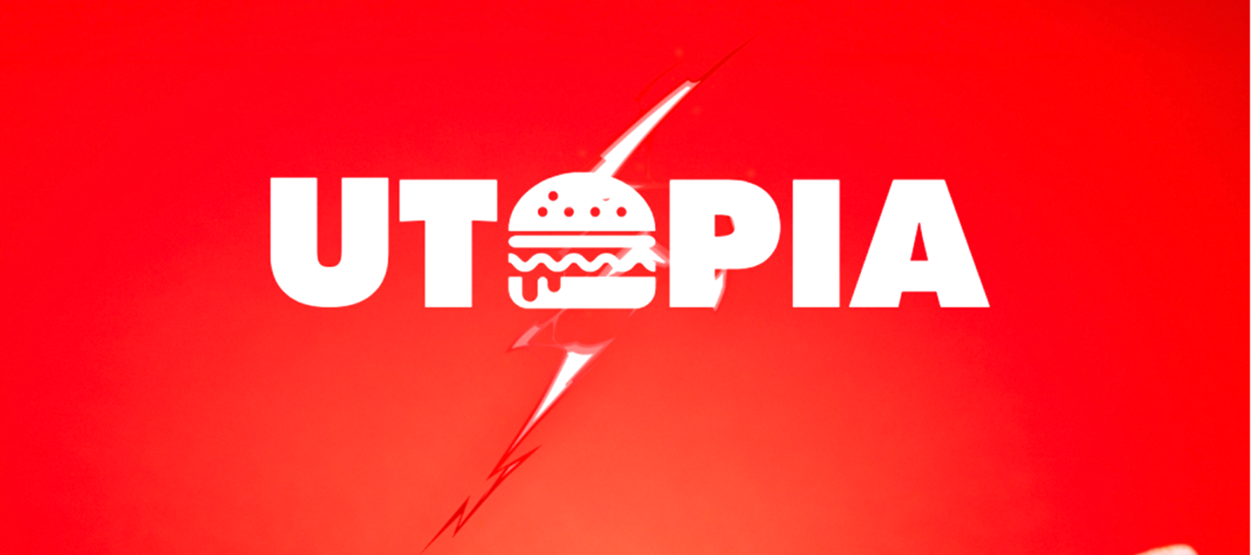Local Marketing for Business in Romania: 5 Effective Content Strategies

Local businesses in Romania face all kinds of challenges in the digital age. It's a jungle out there, with hundreds of companies vying for the attention of customers. Many entrepreneurs end up investing in marketing without feeling any real effect, and even find themselves wasting resources on strategies that fail to create any genuine connection with the people around them.
Local content marketing can bring an increase of up to 60% in the number of new customers, if it is adapted to the Romanian audience. The difference between a good campaign and one that doesn't catch on is, most of the time, in how well you understand what's bothering the people in the area and how relevant the content created is to them.
By combining current digital methods with a serious dose of knowledge of the local mindset, businesses can build real relationships with their customers. Below are five content strategies that really worked for local businesses in Romania, plus some practical ideas to implement them without too much hassle.
Key Points
- Personalized content for Romanian culture and behavior brings better results than universal approaches
- Analyzing local data reveals marketing opportunities you don't see at first hand
- Constant monitoring of results helps to quickly adjust strategies to better catch up with the audience
Fundamentals of Local Marketing and the Importance of Content

Romanian companies can no longer ignore the need to connect directly with the community. Well-crafted content is, in fact, the key to gaining trust and attracting the customers who really matter—those near you.
Why local marketing is vital for businesses in Romania
Local marketing means, in short, promoting your products and services exactly where your customers are. In Romania, this matters enormously, because the market is not exactly like in textbooks from outside.
Romanian markethas some peculiarities that are difficult to ignore:
- People prefer to buy from someone nearby
- Trust is built face-to-face, not just online
- Promotion costs can be much lower if you know how to target locally
Technology helps, sure, but it also matters a lot what message you send and how you adapt it to the specifics of the place. Online platforms give you tools for targeting, but they don't do the job for you.
- Brand recognitiongrow in your area
- Customers become more loyalif I feel that you understand them
- Salesincrease, especially on recommendations between neighbors or friends
The role of quality content in attracting local customers
The relevant content is what makes the difference. People want information related to their area, not generalities.
What types of content go well locally?
- Articles about community events
- Guides for local services Really, not just listings
- Testimonials from local customers — nothing beats an honest review
- Promotions and offers adapted to the local context
Content must speak the language of the community. What happens in Cluj, you don't have to go to Constanta, do you?
Advantages of localized content:
- It becomes more relevant to who reads
- Helps you appear higher in local searches
- People react better, comment, share
- You build your reputation in your area
Differentiation from local competition
Local strategies help you stand out from the crowd. If you know what matters to your area, you can have a clear advantage.
What can differentiate you?
- Know local traditions and customs
- You adapt your schedule and services to the needs of the people in the area
- Get involved in local events
- Collaborate with other businesses nearby
Locally, it matters a lot where you are, what people say about you and the relationships you build, not just the price or the offer.
Successful businesses focus on:
Identifying the Target Audience through Data Analysis

Without understanding who you are addressing, any strategy becomes a kind of lottery. Demographic data analysis and a little local research show you who your customers are really interested in. When you adapt your message to what interests people in the area, you have a real chance of turning them into customers, not just visitors.
Use of demographic data for consumer segmentation
Demographicsthey say a lot: age, income, education, where they live. Based on them, you can divide the market into smaller groups with clear needs and preferences.
Age, for example, matters: 25-35 year olds are looking for something different than those 50+. Income also influences what products or services people choose. You can adjust prices or offers according to this data.
Where do you get this data from?
- National Institute of Statistics
- Google Analytics — see who enters the site
- Social media — there you will find a lot of useful information
- Surveys among current customers
Location makes all the difference. Customers in Bucharest do not have the same expectations as those in Constanta or Cluj.
Market research and creating the ideal customer profile
Local research means finding out how people in your area buy. You can observe directly, ask, or analyze what the competition is doing.
What works?
- Online surveys for existing customers
- Short interviews in the store or at local events
- Reviews on Google and Facebook — sometimes they say more than you think
- Look at what local competitors are doing, it doesn't hurt to keep an eye on them
The ideal customer profile is not just a statistic. You build it starting from age, occupation, income, hobbies and what problems you want to solve. Where does it sit online? Facebook, Instagram, TikTok? It's good to know, so as not to speak for yourself.
Do not forget to review the profile every six months. People change, and so do their habits — if you don't adapt, you risk falling behind.
Adapt your message to your local preferences
Each region in Romania has its own customs and cultural nuances. In order to work, marketing messages really need to take these differences into account.
The language should be as close as possible to the way people in the area speak. In Oltenia, for example, one immediately feels a different tone from Moldova or Transylvania.
Elements to adapt locally:
- References to important local events
- Use of well-known regional expressions
- Mention of local landmarks
- Adaptation of offers to local traditions
The working hours and periods of promotions should be adapted to the local rhythm. For example, in rural areas, people go shopping on days other than those in cities.
A quick test with 10-20 people in the area can bring up problems you didn't even think about. It's easier to correct ahead of time than to fix after.
5 Content Strategies to Attract Real Customers
Local businesses can even attract real customers if they manage to connect with the surrounding community. It's not just about online or offline, it's about how you combine them for visible results.

Leveraging social media for local engagement
Facebook and Instagramare still most used platforms for local businesses in Romania. It's important that posts are about real life in the community, not just dry ads.
Photos from the store or services really catch on well. People want to see who works there, what the products used by real customers look like.
Interactive Stories are a good idea. Surveys, questions about local preferences... all this really generates discussion.
It also matters when you post. The majority of Romanians enter social media in the evening, from 19:00 to 22:00. It does not hurt to keep this in mind.
Local hashtags(#Bucuresti, #Cluj, and others specific to the neighborhood) make content easier to find. Do not ignore this detail.
When you respond quickly to comments and messages, people feel that they care about someone. A same-day response really makes all the difference.
Developing personalized content for the local community
Local content should touch on topics such as Events in the city Or the Romanian traditions. It doesn't hurt to post about local or national holidays when appropriate.
Blog articlesabout the history of the area or local recommendations bring new audiences. A restaurant, for example, can tell about the traditional cuisine of the place.
Collaborations with local influencers or people known in the community add a boost of confidence. They do not have to be celebrities, but people with real influence in the area.
Practical guides For the locals, they even bring organic traffic. A florist, for example, can explain how to care for plants in the Romanian climate.
Content written in romanian and with local expressions create more authentic links. Automatic translations or generic texts do not really appeal to the public.
Editorial calendarshould include the days of significance for Romanians in the area. Martian, National Day or religious holidays are not to be missed.
Implementation of reviews and recommendations from customers
Google My Business This is essential for local reviews. The profile must be complete and up to date, otherwise customers pass on.
Ask reviews at the right time: after a positive experience, people are more willing to leave a feedback.
The response to each review shows professionalism. Even at Negative reviews, a polite answer and a sincere solution can greatly change the perception.
Review campaigns may include small incentives. A 5% discount on the next visit can even motivate customers to write a few lines.
Good reviews are worth showing on website and social media. Screenshots from Google or Facebook can be reposted without any problems.
Video-Testimonialshave a special impact. Many Romanians trust video recommendations more than written ones, no wonder.
Organization of local events and campaigns
Physical eventsThey are a direct path to community. Tastings, workshops or open-door days bring new people to the door.
On the digital side, event promotion is vital. Facebook Events and Instagram Stories take the news quickly to the right audience.
Local PartnershipsThey can amplify the effect of campaigns. When two or three businesses in the area team up, the event becomes more attractive to everyone.
Seasonal CampaignsYou have to take into account the Romanian specifics. Spring promotions, summer deals or winter discounts always have an outlet if they are anchored in local customs.
Photos and videos from events become valuable content in the long run. You can return to them in future campaigns without seeming forced.
Local competitionswith relevant prizes even attract participants. Prizes need to be useful, not just symbolic, to matter to people in the area.
Measurement of Results and Continuous Optimization of Strategies
Local marketing strategy does not go on autopilot. Constant monitoring and small adjustments are needed, based on real data from the community. Without listening to what people are saying or following the numbers, you risk getting lost quickly.
Monitoring content performance
Google Analyticsmakes it clear where local traffic comes from and what people are doing on the site. It's worth tracking lead conversions and traffic sources, not just visits.
Key indicatorsfor local content it would be:
- Views on the Google My Business page
- Click-through rate (CTR) for local posts
- Number of phone calls generated
- How many requests for quotation actually arrive
Facebook and Instagram Insightsprovides data on who interacts with the content. You can see the age, the area, even the hours at which the audience is active.
Cost per conversionand ROAS (Return on Ad Spend) tells whether the investment in content is really worth it.
Collecting feedback from the community
Online Questionnaires and surveys are useful to understand what the community thinks about the brand. Questions would do well to be short and to the point, without complicated wording.
Google Reviews and comments on social networks provide direct feedback. If you watch them constantly, you can quickly catch problems or good ideas for improvement.
Local Events are the perfect opportunity for face-to-face feedback. Direct conversations with customers reveal details that online doesn't always catch on.
Local Facebook Groups and community forums are good for listening to what is being discussed organically about the business or field. Sometimes the best ideas come from there, not from official surveys.
Adjustment of strategies based on the data obtained
Analysis of demographic data helps you tailor your content for those audience segments that actually drive conversions. If you notice that a certain age group reacts better, it makes sense to adjust the content for them.
Channel Optimization Much depends on the actual performance. When you see that a channel has a poor conversion rate, it's probably worth shifting your budget to the variants that actually work.
A/B Testing on messages and pictures it reveals what catches better locally. It is important that the tests run long enough, otherwise you risk drawing hasty conclusions.
Frequency adjustment Posts depend on how active the audience is. If people react better to daily posts or, on the contrary, prefer a rarer presence, it would be a shame not to adjust the strategy.
Editorial calendar It's not nailed down—it changes based on local events or community feedback. Flexibility is needed here, otherwise you risk seeming disconnected.
What our customers say
From excited about collaboration to results

Young, creative and full of inspired ideas. We recommend this team to anyone who needs quality UI/UX services!”

Contact us for collaboration
We are here to help you turn ideas into reality. Contact us for details!

